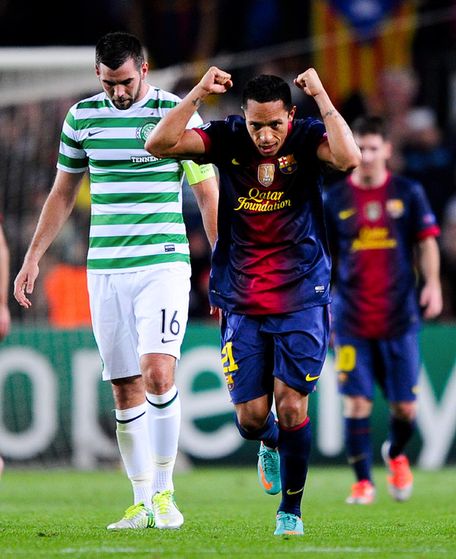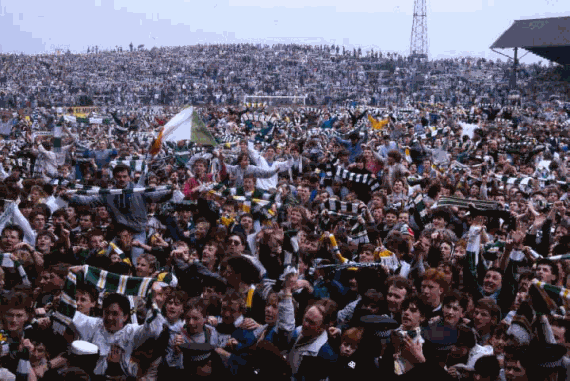Strachan was sacked later that year, after a 1-0 defeat at home to Grimsby in what is now the Championship. He should have left a year before, when a 3-0 home defeat by Everton saw him need a police escort just to enter the dressing room. At the time, the fans were blamed as having unrealistic expectations. Of course we were blamed, for Strachan was the darling of the English media with his quick witted one liners to nervous journalists. We should have just been grateful to have such a high profile boss, it was claimed, conveniently forgetting that, in the 2000/01 season he seemed unable to orchestrate any notion of tactical nous. Desperately signing John Hartson, a man who was written off by the footballing world because of his knee injury, almost saved the club’s fortunes.
Despite being sacked after leaving a recently relegated side languishing in 18th place, Strachan managed to be back managing within six weeks, exasperatingly at a Premier League club in Southampton. In just over two years, he partially restored his fractured reputation by leading the south coast club to defeat in the 2003 FA Cup final. He won the same amount of games as he lost, and won two manager of the month awards in a calendar year. He resigned in February 2004, having previously wanted to step down at the end of the season in order to take a break from football. At this stage, aside from the six week break between his sacking by Coventry and appointment at Southampton, he had managed in England since November 1996.
It was a monumental shock for many Celtic fans when Martin O’Neill had to resign at the end of the 2004/05 season. Personally, the slow, lingering feeling that a truly magical period of Celtic’s modern history was diminishing was only enhanced by the immediate revelation that Gordon Strachan, a man who had, at this stage, taken charge of 325 matches and not won a trophy, would be the new manager at a club who had been in a European final three years previously. It made no sense, unless you were a member of the Celtic board who wished to appoint a man with the primary objective of reducing a wage budget.
Yet, from the abject horror of Artmedia, the 2005/06 Celtic team won the SPL in record time. Was this due to the manager’s tactical flexibility? Winning the league that year had as much to do with Strachan as this year’s league win will have to do with Neil Lennon, very little. The Bigots Formerly Known As Rangers (TBFKAR) were staging a very amusing audition for their much acclaimed comedy show of 2012, by being managed by a clueless fool who was living off two fortuitous title wins of his own. The title win was great, but it told very little about Strachan as a manager.
The subsequent season was similar in the sense that TBFKAR were out of the equation thanks to Paul Le Guen. Where Strachan did surprise many was in Europe, however. The victory over Manchester United will always be an iconic game, but luck played as vital a part as it did in Turin five years earlier. Indeed, Strachan’s hoops finished on the same number of points as O’Neill’s in 2001/02, yet the latter were eliminated.
If there is one season in which my predispositioned prejudices about Gordon Strachan came close to disintegrating, it was the 2007/08 season. A second successive Champions League qualification (albeit with nine points again) was eclipsed by the most unlikely of comebacks in the league. Did luck play a part here? Certainly, TBFKAR EBT funded run to the Uefa Cup final impacted upon their league season in the same way that the Seville season did for Celtic, but credit has to be given to the manager. Or does it? As Ian Crocker said when Stephen McManus lifted the SPL title at Tannadice, ‘it’s a title for Tommy’.
How significant was the impact of Tommy Burns throughout Strachan’s tenure? Whilst it is easy to become nostalgic about the deceased, Burns did almost overhaul a vastly superior TBFKAR team in the mid-90s. The 2008 success seemed to stem from a playing squad coming to terms with a tragedy within its midst. For several months, average players such as McDonald, Robson and McManus played the best football of their careers. It is exceptionally telling that all three later followed Strachan to Middlesbrough, and all three flopped. This raises question marks on whether it was the manager that inspired the players, or the level of feeling for Celtic? Whatever the answer, I do believe that Strachan should have resigned after that victory, with supporters singing his name.
Strachan’s teams were often pragmatic and dogged. He inherited a rough diamond in McGeady, and was blessed with a footballing genius in Shunsuke Nakamura, a man who never learned the language during his Celtic career. I’d like to think Strachan merely whispered to Naka’s translator, ‘tell him to do his thing’. His players were often cold, football hating folk who resolutely saw the game as a job, such as his golfing buddy Paul Telfer, and the infuriating Gary Caldwell.
Since departing Celtic Park twelve months later than he should, Strachan managed a torrid 46 game spell at Middlesbrough, where he presided over just 13 victories. Despite filling his side with SPL players, he could not recreate his success at Celtic. In the Championship, a league infinitely more competitive, his tactical inadequacies were highlighted. His luck had firmly faded away.
Gordon Strachan was successful at Celtic, if success can be defined by trophies. His style of play was often laboured, and aside from an improbable six weeks in 2008 and several Champions League evenings, the element of excitement was invisible. He should always receive a positive reception when he returns to Celtic Park, but Strachan is a manager who should thank his lucky stars for shining down on him more than his style of football truly deserved. I am exceptionally biased, though.





